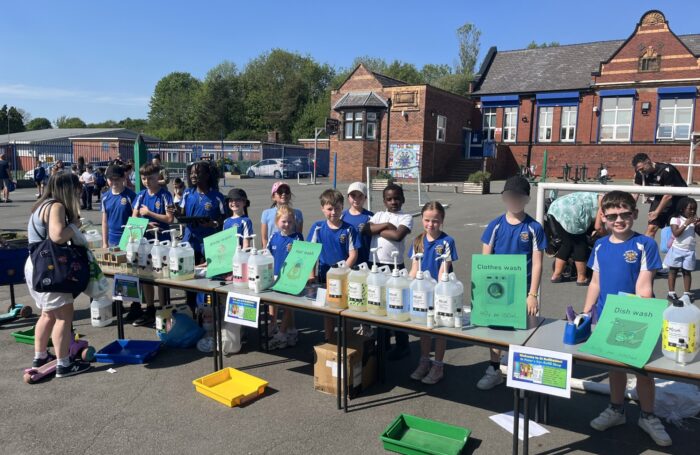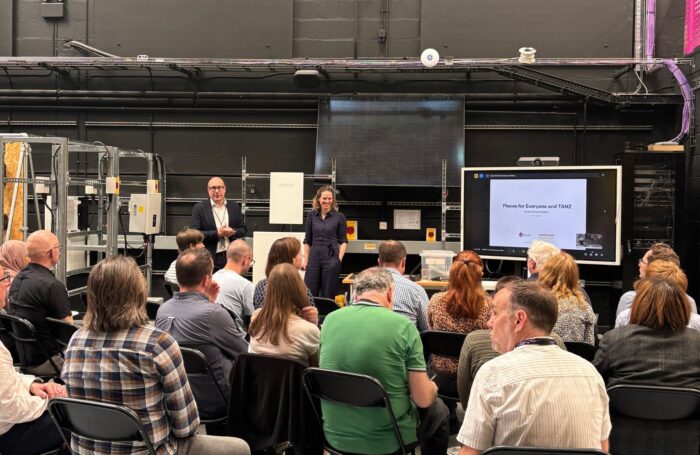How to keep warm during the energy crisis
The price of energy is one of the most current topics of conversation at the moment, and it seems that there isn’t a definitive answer on how and when this will peak and begin to settle down, feeling more affordable again.
This conversation is extremely relevant to many. Most of us are feeling the financial squeeze with the rising cost of living, the massive hike in energy prices coupled with other social issues such as Covid – altogether not a good combination.
Adding to the conversation is that the majority of our homes could be better insulated to retain the heat we generate to stay warm and being more “thermal efficient”. As a result, over 23% of the UK’s carbon emissions come from heating and powering Greater Manchester homes. There are over 880,000 homes, 2,700 public buildings and as yet unknown number of commercial buildings in Greater Manchester that will need some form of renovation by 2038 (when the region aims to be carbon-neutral).
Making your home more energy efficient, reduces your carbon emissions and lowers your energy bills.
We also need to review the technology that we use to keep our homes warm and comfortable, ensuring that they are future proof and not consuming conventional gas which creates carbon emissions. Which adds another dilemma if your boiler breaks down, can you afford to replace your old boiler with new low carbon technology?
Let’s try to address these issues…
Easy Energy Efficiency Tips
There’s lots of quick tips which you can implement today to reduce your energy usage:
- Switch off stand-by
- Draught-proof gaps
- Turn lights off (when not in the room)
- Wash at 300C and reduce your load by one a week
- Avoid using the tumble dryer
- Take a 4 minute shower
- Don’t overfill the kettle
- Reduce your dish washer use by one a week
- Insulate your hot water cylinder
Find out how much money these tips can save you by visiting the Energy Saving Trust’s page.
Energy efficiency to reduce your carbon footprint
The largest single source of heat emissions is from our buildings, domestic properties in particular. We need to dramatically reduce the amount of energy our buildings consume to keep us warm, cool, fed and healthy.
If you want to reduce your carbon emissions and keep your energy bills low, installing insulation or draught-proofing will reduce heat loss. These measures can include:
- Roof and loft insulation
- Cavity wall insulation
- Solid wall insulation
- Floor insulation
- Draught-proofing doors and windows
- Replacing old doors and windows with triple-glazing
For more detailed information and advice, the Energy Saving Trust pages are once again a great place to start.
Fuel Poverty
More and more people are having to make the difficult choice of heating or eating – new analysis from the Joseph Rowntree Foundation highlights the crisis, findings show that households on low incomes will be spending on average 18% of their income after housing costs on energy bills after April. For single adult households on low incomes this rises to a shocking 54%, an increase of 21 percentage points since 2019/20. Lone parents and couples without children will spend around a quarter of their incomes on energy bills, an increase of almost 10 percentage points in the same period.
If you’re struggling to pay for your energy, your first option is to discuss this directly with your energy provider who may be able to suggest different payment options or alert you to other financial assistance which may be available.
The Citizen’s Advice Bureau will be able to provide help and advice if you are already in debt or struggling to pay your bills: Debt and money – Citizens Advice
You can also visit the Energy Saving Trust for help and advice on reducing your energy consumption as well providing advice on getting financial support. Energy advice for your home – Energy Saving Trust
It is worth checking out your local Council’s website to see if they any specific schemes in your area, depending on your personal circumstances, there might be some financial assistance available:
Affordable Warmth Obligation is a government-led eco scheme that helps people heat their homes in an energy-efficient way. It allows people to spend less on their monthly bills and supports you to reduce your carbon impact too. You may be able to access free or partly funded energy improvements. Read more
You could get £140 off your electricity bill for winter 2021 to 2022 under the Warm Home Discount Scheme. The money is not paid to you – it’s a one-off discount on your electricity bill, between October and March. You may be able to get the discount on your gas bill instead if your supplier provides you with both gas and electricity. Contact your supplier to find out. The discount will not affect your Cold Weather Payment or Winter Fuel Payment. Read more
The Connected for Warmth programme offers a helping hand to households struggling to afford to heat their homes because they do not currently have a central heating system. The Connected for Warmth programme is run by AgilityEco, working in partnership with Cadent, and can provide both a new central heating system and a free connection to the gas main if a property does not already have one. The funding comes from the Warm Homes Fund, which has been established by National Grid and is administered by Affordable Warmth Solutions. Read more about eligibility and the programme here.
General advice on switching
We have always advised that you should consider switching your energy supply to a ‘green’ supplier, however as the energy price crisis continues it may be best to stick with your current supplier, as many suppliers are not currently taking on new customers and you may not actually save anything from switching to another supplier.
If your energy supplier closes, you don’t need to do anything. You will still receive your gas and electricity as usual. Ofgem, the energy regulator, will move your account to a new supplier. They will let you know which one this is. If you want to find out more, read this information from Citizens Advice.
How our energy might change in the future
Greater Manchester Combined Authority is part of the Greater Manchester Local Energy Market (GMLEM), a project which is creating a modern energy system across the city. This world-leading scheme led by Greater Manchester Combined Authority (GMCA) involves 11 key partners and is a key part of GMCA’s plans for decarbonisation. Greater Manchester is committed to become a carbon neutral emissions city region by 2038, and the GMLEM is a really important part of this.
Ultimately, the GMLEM will allow the city-region to manage its own power supply.
It aims to:
- Increase local renewable electricity generation
- Decarbonising how we heat our buildings
- Increase the diversity and flexibility of our electricity supply
- Allow for the increase in growth of electric vehicles and new low carbon technology
You can find out more about plans for the GMLEM on the GMCA website.
Note: All information contained accurate as of 7th February 2022. For the latest advice please see the Energy Saving Trust.



